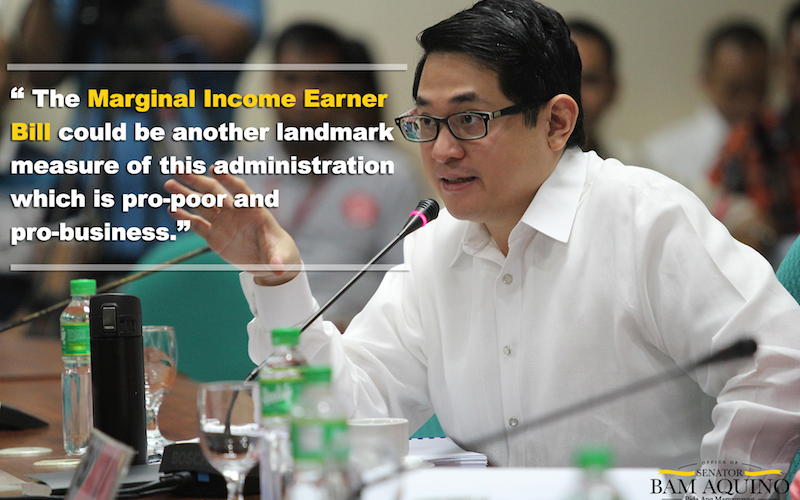Bam wants simplified tax system and lower taxes for small businesses
Aside from reducing personal income tax, the government must also provide small businesses with lower income tax rate, a simplified process and other privileges to stimulate their growth, according to Sen. Bam Aquino.
While he is certain that the personal income tax reform will be passed, Sen. Bam said the government must include tax reform for small businesses in its tax reform package.
“With all the support from the executive, we’re certain the personal income tax reform will be passed. What we should also focus on is the Small Business Tax Reform Act na makakatulong sa mga maliliit na negosyo na nagsisilbing kabuhayan ng maraming pamilyang Pilipino,” said Sen. Bam, referring to his Senate Bill No. 169.
Sen. Bam’s bill seeks to provide small businesses with a lower income tax rate, VAT exemption and simplified filing of taxes.
Under the measure, all small businesses shall be exempt from payment of income tax for the first three years of its operation from date of establishment and will be subjected to lower income tax rates thereafter.
Small businesses earning less than P300,000 will be exempted from income tax while those with income ranging P300,000 up to P10,000,000 will be subjected to a 10-percent income tax rate.
“This bill also proposes the lowering of the income tax rate for MSEs and an exemption from VAT, among other methods to help our small businesses grow,” said Sen. Bam.
The measure also pushes for simpler bookkeeping, a special lane and assistance desk for MSEs, exemption from tax audit, annual filing of returns, and payment in installment.
Sen. Bam stressed the need for simpler taxation, saying the Philippines placed 126th out of 189 economies in Ease of Paying Taxes in a joint study by PWC and the World Bank – Paying Taxes 2016.
“This must change. The Small Business Tax Reform Act will simplify tax procedures and unburden our small businesses of the complex tax process,” said Sen. Bam.
By streamlining the country’s tax system, it will boost the chances of our local enterprises to succeed and, in turn, generate prosperity and livelihood for more and more Filipinos.


Recent Comments